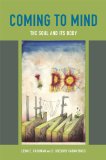March 25, 2014

A Metaphysics of Psychopathology by Peter Zachar (MIT Press, 2014)
(kindle ed.), (amazon.co.uk), (UK kindle ed.)
Book description from the publisher:
In psychiatry, few question the legitimacy of asking whether a given psychiatric disorder is real; similarly, in psychology, scholars debate the reality of such theoretical entities as general intelligence, superegos, and personality traits. And yet in both disciplines, little thought is given to what is meant by the rather abstract philosophical concept of “real.” Indeed, certain psychiatric disorders have passed from real to imaginary (as in the case of multiple personality disorder) and from imaginary to real (as in the case of post-traumatic stress disorder). In this book, Peter Zachar considers such terms as “real” and “reality” — invoked in psychiatry but often obscure and remote from their instances — as abstract philosophical concepts. He then examines the implications of his approach for psychiatric classification and psychopathology. Proposing what he calls a scientifically inspired pragmatism, Zachar considers such topics as the essentialist bias, diagnostic literalism, and the concepts of natural kind and social construct. Turning explicitly to psychiatric topics, he proposes a new model for the domain of psychiatric disorders, the imperfect community model, which avoids both relativism and essentialism. He uses this model to understand such recent controversies as the attempt to eliminate narcissistic personality disorder from the DSM-5. Returning to such concepts as real, true, and objective, Zachar argues that not only should we use these metaphysical concepts to think philosophically about other concepts, we should think philosophically about them.
Google Books preview:
Comments (0)
- new books,philosophy of mind,psychology,reality
February 10, 2014

The Mirror of the World: Subjects, Consciousness, and Self-Consciousness by Christopher Peacocke (Oxford University Press, 2014)
(Hardcover at Amazon – 4/27/14), (amazon.co.uk), (UK kindle ed.)
Book description from the publisher:
Christopher Peacocke presents a philosophical theory of subjects of consciousness, together with a theory of the nature of first person representation of such a subject of consciousness. He develops a new treatment of subjects, distinct from previous theories, under which subjects were regarded either as constructs from mental events, or fundamentally embodied, or Cartesian egos. In contrast, his theory of the first person integrates with the positive treatment of subjects–and it contributes to the explanation of various distinctive first person phenomena in the theory of thought and knowledge. These are issues on which contributions have been made by some of the greatest philosophers, and Peacocke brings his points to bear on the contributions to these issues made by Hume, Kant, Frege, Wittgenstein, and Strawson. He also relates his position to the recent literature in the philosophy of mind, and then goes on to distinguish and characterize three varieties of self-consciousness. Perspectival self-consciousness involves the subject’s capacity to appreciate that she is of the same kind as things given in a third personal way, and attributes the subject to a certain kind of objective thought about herself. Reflective self-consciousness involves awareness of the subject’s own mental states, reached in a distinctive way. Interpersonal self-consciousness is awareness that one features, as a subject, in some other person’s mental states. These varieties, and the relations and the forms of co-operation between them, are important in explaining features of our knowledge, our social relations, and our emotional lives. The theses of The Mirror of the World are of importance not only for philosophy, but also for psychology, the arts, and anywhere else that the self and self-representation loom large.
Google Books preview:
See also: Author’s Facebook page
Comments (1)
- consciousness,new books,philosophy of mind,self
January 22, 2014

Languages of Intentionality: A Dialogue Between Two Traditions on Consciousness (Continuum Studies in Philosophy) by Paul S. MacDonald (Bloomsbury Academic, 2014)
(amazon.co.uk)
Book description from the publisher:
Intentionality – the relationship between conscious states and their objects – is one of the most discussed topics in contemporary debates in philosophy of mind, cognitive neuroscience and the study of consciousness. Long a foundational concept in Phenomenology, it has also received considerable coverage in the writings of analytic philosophers. This book is the first study to offer an impartial, well-informed assessment of the two traditions’ approaches through an in-depth investigation of the principal thinkers’ ideas, so that their positions emerge side-by-side, converging and diverging on certain shared themes.
Beginning with a historical discussion of the development of the term in the work of Continental thinkers in the 19th and early 20th centuries, the book considers the work of Brentano and Husserl and subsequent existentialist critiques. From there, it explores how empirical-analytic philosophers took up the topic, drawn as they were to materialist and computer models of the mind. Finally MacDonald presents a new ‘hybrid’ account of intentionality that will be a crucial work for scholars working on consciousness and the mind.
Comments (0)
- consciousness,new books,philosophy of mind
January 16, 2014

The Psychology of Yoga: Integrating Eastern and Western Approaches for Understanding the Mind by Georg Feuerstein (Shambhala, 2014)
(kindle ed.), (amazon.co.uk), UK kindle ed.)
Book description from the publisher:
How the mind works according to the ancient yogic traditions, compared and contrasted to the approaches of Western psychology—by one of the greatest yoga scholars of our time.
Georg Feuerstein begins the book by establishing the historical context of modern Western psychology and its gradual encounter with Indian thought, then follows this introduction with twenty-three chapters, each of which presents a topic–generally a point of correspondence or distinction–between Western and Eastern paradigms. These are grouped into three general sections: Foundations, Mind and Beyond, and Mind In Transition. The book concludes with a brief epilogue as well as three appendices, adding depth to the discussion of the ancient yoga traditions as well as an informative survey of yoga psychology literature. The Psychology of Yoga is a feast of wisdom and lore, assembled from a perspective possible only for one whose monumental scholarship has been tempered and leavened by practice.
Google Books preview:
See also: Author’s website
Comments (0)
- culture,new books,philosophy of mind,psychology
December 30, 2013

Coming to Mind: The Soul and Its Body by Lenn E. Goodman and D. Gregory Caramenico (University of Chicago Press, 2013)
Book description from the publisher:
How should we speak of bodies and souls? In Coming to Mind, Lenn E. Goodman and D. Gregory Caramenico pick their way through the minefields of materialist reductionism to present the soul not as the brain’s rival but as its partner. What acts, they argue, is what is real. The soul is not an ethereal wisp but a lively subject, emergent from the body but inadequately described in its terms.
Rooted in some of the richest philosophical and intellectual traditions of Western and Eastern philosophy, psychology, literature, and the arts and the latest findings of cognitive psychology and brain science—Coming to Mind is a subtle manifesto of a new humanism and an outstanding contribution to our understanding of the human person. Drawing on new and classical understandings of perception, consciousness, memory, agency, and creativity, Goodman and Caramenico frame a convincing argument for a dynamic and integrated self capable of language, thought, discovery, caring, and love.
Google Books preview:
Comments (0)
- consciousness,new books,philosophy of mind







